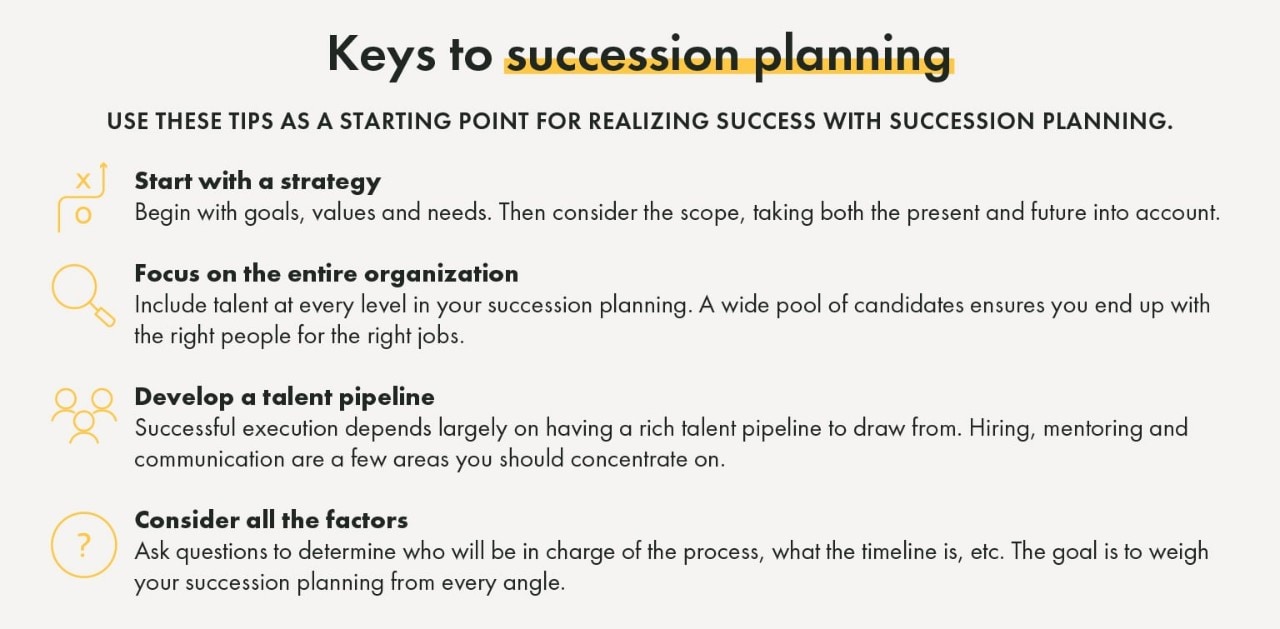
Navigating Succession Planning: Essential Tips for Smooth Transitions
Succession planning is a critical aspect of organizational management, ensuring the seamless transition of leadership roles and sustaining business continuity. Here, we explore key tips to navigate this process effectively.
Understanding the Importance of Succession Planning
Succession planning is not just a task for the future; it is a strategic imperative. Organizations that recognize the significance of succession planning are better prepared to face unforeseen challenges. It is a proactive approach to leadership development that minimizes disruptions and safeguards the long-term success of the business.
Start Early and Be Proactive
The earlier an organization begins succession planning, the better. Proactivity allows for a comprehensive assessment of potential successors, ample time for skill development, and the identification of leadership gaps. Starting early ensures that the organization is prepared for unexpected leadership changes and minimizes the risk of talent shortages.
Identifying Key Leadership Roles
Succession planning should focus on key leadership positions. Identifying critical roles within the organization enables a targeted approach to talent development. Whether it’s the CEO, CFO, or other executive roles, understanding which positions are pivotal to the organization’s success guides the succession planning strategy.
Developing a Leadership Pipeline
A robust leadership pipeline is the backbone of successful succession planning. Organizations should invest in developing a pool of talented individuals who can step into leadership roles seamlessly. This involves providing training, mentorship programs, and exposure to different facets of the business to groom potential successors.
Incorporating Skill Development Programs
Succession planning goes hand-in-hand with skill development. Organizations should actively invest in programs that enhance the skills and competencies of potential successors. This includes both technical skills related to the specific role and soft skills essential for effective leadership.
Communication and Transparency
Transparent communication is key to the success of succession planning. Keeping employees informed about the organization’s succession strategy fosters trust and engagement. Open communication ensures that potential successors are aware of their development paths and feel motivated to contribute to their fullest potential.
Regularly Reviewing and Updating Plans
Succession planning is not a one-time event; it requires continuous review and updating. The business landscape evolves, and so do the skills and requirements of leadership roles. Regularly reviewing and updating succession plans ensures alignment with organizational goals and adaptability to changing circumstances.
Identifying and Nurturing High-Potential Talent
Recognizing high-potential talent is fundamental to succession planning. Organizations should have mechanisms in place to identify individuals with the capability to take on leadership roles. Nurturing these high-potential employees through targeted development programs ensures a pipeline of qualified successors.
Scenario Planning for Contingencies
Contingency planning is a crucial aspect of succession planning. Organizations should consider various scenarios, including sudden departures or unexpected challenges. Having contingency plans in place ensures that the organization can respond swiftly and effectively to unforeseen events.
Seeking External Expertise
External expertise can bring valuable insights to the succession planning process. Engaging external consultants or advisors can provide an objective perspective, assess industry best practices, and offer guidance on developing a robust succession strategy.
Succession Planning Tips for Your Organization
Incorporating these succession planning tips into your organizational strategy can pave the way for smooth transitions and sustained success. To explore additional insights and resources, visit Succession Planning Tips. This comprehensive guide offers practical advice and tools to enhance your succession planning efforts.
